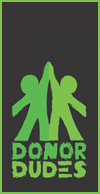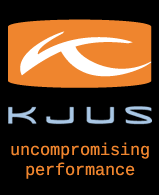Don't Miss John Brown's Body in Aspen
 March 19, 2014
March 19, 2014 Don't miss the sick Reggae band from Boston on March 25 at Belly Up Aspen.
Click JBB for pix.
View the vid STEP INSIDE from the latest album Kings and Queens.
The interview below was conducted by Alexa Schoenfeld for AspenSpin. Her work appears in it's entirety and unedited. It is the longest blog post in the history of AspenSpin.
INTERVIEW WITH TOMMY BENEDETTI from JOHN BROWN’S BODY (for AspenSpin)
AS: What's your relationship with Aspen? CO? You've played Red Rocks - how does CO stand out amongst everywhere else in the US and the world that you play and tour?
TB: Colorado was one of the first places in the country that we started working a lot, to tour nationally, just due to the sheer number of towns and the cities there are to play in. And then the amount of incredible venues there are in that scene alone, it's just a magnet for touring bands to do a lot of work. The venues are incredible. We've played a lot of them from the Filmore to the Fox, dozens of times. And we really love coming to Aspen as well for the Belly Up. We also play the Belly Up Solana Beach in San Diego, [and] when it comes to being a pro-club and really welcoming, and we super look forward to going [to both Belly Up venues].
AS: Have you found a big difference between the two Belly Ups (Aspen and Solana Beach, CA), speaking of that -- in the tone of the two as a performer?
TB: I think Aspen, to me, seems a little more intimate. I like the set-up of that one [a bit] more. But they both have a lot going for them as far as production, and hospitality; the people there are really nice. They're world-class venues across the board. I love playing music in the Rockies; I love playing music on the beach, on the coast. So you can't lose.
AS: Obviously Belly-Up is an amazing small venue and you guys have played incredible large outdoor venues and larger indoor venues as well. How does that affect you as a performer? Do you have a preference on which places you like to play?
TB: We have played a lot. The majority of the guys in the band prefer to play small to mid-size clubs, honestly. Being able to feel the contact with the audience -- it makes a huge a difference. For us, we're such a big band, we're an 8-piece band, so we like being closer to each other on a stage where we can really hear the sound of our instruments as they are instead of hearing them through in-ear monitors or [where] the horn section is 30 feet away from you. I prefer, I think we all prefer, to be as tight as possible. And I think that the Belly Up is actually a really nice size stage and room for us just to reference. You [have] to get used to playing all sizes, from outdoor festivals to the theaters to the clubs. But I think if you asked a majority of the guys in the band, I think we'd really feel most comfortable in 300- to 500-seat rooms.
AS: Do you have a favorite venue as a patron -- just as a music goer, yourself?
TB: What comes to mind off the top of my head is I really like playing Cervantes and going to Cervantes in Denver. I live in Boston so there's a place called The Paradise in Boston that JBB does play at. There's definitely too many to count, but those two in particular are really great for seeing music and playing music.
AS: Speaking of Boston, I know you studied there and you seem to have a deep relationship with the city. DUB APOCALYPSE is such an awesome concept and I'm sure it adds a ton of color to the Boston music scene. How have you seen that local music scene change over the years since you were a student and now put this side-band/project together?
TB: Thanks for asking about that. Boston is a really amazing place to play music. I've been living there for about 20 years. There [are] a bunch of different kinds of collectives that are really working a lot and there's a lot of venues that showcase a lot of great, different types of music right now. DUB APOCALYPSE is something that myself and Nate [Edgar], our bass player for JBB, came up with when we had a Sunday-night residency, and it just kind of grew out of the necessity of having different people week to week because of touring schedules. We were out with JBB or a couple of the guys were with G-Love for a while and other bands that tour regionally or nationally, so the circle just widened over the years. And now it's this really amazing collective of people and the band has actually become a lot busier in my off-time from JBB.
And musically it's really nice to play in a smaller-combo that's more improvisational-based and it's a lot more expansive sonically. It's got something for everybody, and it's satisfying to be a part of it and see it grow. We're actually in the process of doing some recording now. We have 8 tracks, all original tracks, done, so it's an on-going thing that's growing nicely and a nice, little regional thing. And people seem to enjoy it, and we definitely love doing it.
AS: Regarding Berklee [Berklee College of Music, in Boston, MA -- largest independent college of contemporary music in the world; Benedetti graduated in _____] how did you find your way to music education and what was your experience was like there?
TB: I was born and raised in Albany, NY, which is like three hours west of [Boston]. So [Berklee’s] close to [Albany], and I came down to dive in and make the jump into the full-time music world. I wanted to stay close to my family. And I liked the idea of living on the ocean and by the water.
It was a great thing to do at the time for where I was at: being able to play drums for six, seven, eight hours a day for the better part of two years -- it definitely wasn't a bad thing. And on your path to becoming a profession musician, it's a nice luxury to have. It was a nice springboard to where I'm at today. I still work with, and am in concert a lot with, a lot of people that I met back then.
Still being in Boston, me and Nate [Edgar], our bass player, did a clinic over at Berklee not too long ago, [July 2011] where we did a drum-and-bass clinic and broke down a lot of the groves that we do, and tried to pass on some of the subtle tips of [our music]. So again, it's a cool place to be musically and just having Berklee here there's a ton of musicians that are here and that pass through from all over the planet, so it's a good thing.
AS: Is music education something you would advise young musicians and young artists to seek out?
TB: I don't think it's a must-necessarily. It's very expensive to go to a music college. But I do think it's very beneficial to know how to read music and to be able to speak the language. It comes into play for me sometimes on a weekly basis: being able to read, or know cords. Just be able to have a conversation with people that do know that. It makes it lot easier to communicate. Especially as a drummer, people are always amazed. [Mimicking] "Do you know cord changes? Do you know what key this song this in?" Uh, yeah. [Laughs] Drummers aren't barbarians and we can hang. But [the formal training] definitely helps.
It is a must? I'm sure for every 10 people that go to school you'll find another 5 that don't go that can completely slay. So it's there's not cut and dry [answer]. But does it help? Yes, I think it comes in handy. You definitely meet a lot of people and you're able to get into an environment where you're playing music a ton and you're being exposed to a lot of different music from all over the world, and that's pretty beneficial if you want to be a working musician because you have to wear many hats. You have to hustle, you have to know people, and you have to wear a lot of hats. You have to be able to play a lot of different things, and be ready for anything.
AS: You mentioned how much the performance meant to you as a student. Do you guys work in students at all to DUB APOCALYPSE or do you play amongst them at DUB's home club?
TB: Well the cool thing we did with that clinic that I was mentioning before is Nate and I did the clinic during the day at Berklee, and then at nighttime we did a DUB APOCALYPSE show [for the students] which tied a lot of the concepts we were talking about together. So that was a cool thing to be able to break it down and then show [the students] how it actually comes into play in the real world. DUB APOCALYPSE has a couple residencies here in Boston, and I know a lot of students do come out and see us, and a lot of the guys that are in the band are guitar [players]. One of our guitarists, Jeff Lockhart, is a professor over there at Berklee and a bunch of the horn players are teaching, so I'd like to think that we're on [the students'] radar. A lot of the kids that come to see working musicians have that musical communication.
AS: When you were younger, did you ever have a particular seminal moment as a viewer or a crowd-member? Either at a young age or recently?
TB: Well I was raised on heavier music: Iron Maiden, Ozzy, and ACDC. Which I still listen to and love to this day. Going to those shows as a kid and seeing that stuff was obviously major in getting me to where I'm at today. And as far as more recent things, when I moved to Boston in the early 90s there was a band called Morphine : a trio; just baratone sax, bass, and drums. They were from Boston, one my favorite bands. I knew all the drum stuff, and thought their sound was so unique and incredible. And their lead guy, [bassist and vocalist] Mark Sandman, ended up passing up, actually passed away on stage in Italy about 10 or 12 years ago [ Sandman died July 3, 1999; age 46 ]. So all these years later I ended up meeting the sax player, Dana Colley, who played with Morphine and now he plays with DUB APOCALYPSE, and he's one of my best friends in the world.
And it's just one of those things: I listen to Morphine [now] and I still get that feeling that I got when was in Boston in the early 90s, and I'm just like, "Holy shit! This guy lives up the street from me, and I play music with him all the time -- and he's one of my mentors." It's stuff like that. I'm thankful that I get to play music with people that I really, really love what they do. It's an honor. To be a part of their team.
AS: Do you guys ever put covers into the mix?
TB: We don't really do that kind of thing. Although we have. We did a cover of " Bankrobber" by The Clash for The Joe Strummer Foundation [http://www.strummerville.com]. We've also done a cover, our own kind of tripped out version of "Midnight Ravers,” the old Wailers tune And we did an old spiritual [song] called "Peace in the Valley." We did that on Spirits All Around Us (2003 album). So we've definitely toyed with it here and there, but generally if we're going to put efforts into adding a tune it's going to be one of our originals or something from an older [JBB] album.
AS: Are there any that you'd love to do -- perhaps with DUB APOCALYPSE if not with JBB?
TB: We're big heavy metal fans and metal heads and old school. I think it was was six or eight months ago the guitarist from Slayer, Jeff Hanneman, passed away -- and Slayer's one of my favorite bands of all time. So DUB APOCALYPSE was playing a gig that night, and we ended up pulling out our own version of "Raining Blood": we called it "Raining Doves". You never know what comes around the corner, but DUB APOCALYPSE doing the Slayer tune, I think that was pretty badass.
AS: Are there any of your favorite musicians that you've yet to play with -- be it on a tour or a singular stage?
TB: Well we've really been lucky to play with a lot of them. I think that one of the artists that I'd love to play with, that I LOVE, is Alpha Blondie . He's a reggae artist in the Ivory Coast, and he's almost like the African Bob Marley. He plays for tens and tens of thousands of people. Doesn't really come to the stage a lot. But Alpha Blondie is one of the guys that I would love to have -- to see on a bill with JBB. That would be incredible. Because his bands are always unbelievably tight, and he always has a 3-piece horn section. A lot of what Alpha has done in the past influenced JBB to a certain extent: just having a really big band, having the horn section, and the really tight arrangements.
AS: Coming back to Colorado a bit, do you guys ski or snowboard - ride at all?
TB: A bunch of the guys do, personally I do not. But at least half the guys ski, snowboard, or both, and they'll be psyched [to be here and ride].
AS: Do you have any other personal favorite things to do while you're here, be it hiking on the mountains or places you like to go -- if not in Aspen, in the state?
TB: I just like cruising around and finding spaces to hang and meeting local people. Drinking beers. I definitely go on bike rides when I can. I'm a pretty big cyclist back in Boston, so I like doing that. When we were in Missoula, MT not too long ago, we all went out on this completely crazy tubing adventure down the Blackfoot River and almost died. [Laughs.] We definitely get out there when we can. But most of the time on the road I like to take walks by myself or just tool around town and pop into a bar here and there. Just find things.
AS: Well, as you probably know, on January 1st we had a big turn and now recreational cannaibs is legal across the state. We just in Aspen are now having recreational shops beginning to open. So we have to ask: what are your thoughts on recreational cannabis -- broadly speaking and in Colorado?
TB: Obviously it's great. Massachusetts is also one of the really progressive states in the case of decriminalizing and recently medical as well. It's a great thing across the board. The laws are pretty outdated and random depending on what state you're in, and it's kind of maddening as a traveling musician. If you get caught in the wrong state you could really be in for some tough times. But it's a great thing what's going on in Colorado, and I think it's a good sign that a lot of the rest of the country seems to be following suit.
 Belly Up,
Belly Up,  aspen,
aspen,  john brown's body,
john brown's body,  music,
music,  reggae
reggae 



















































